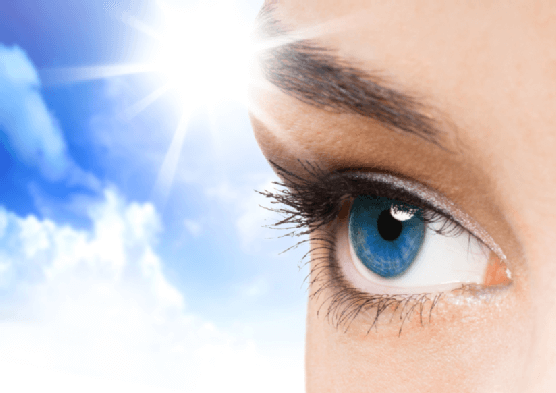Ultraviolet radiation, whether through natural or artificial sources, can seriously damage your eyes. While many people are aware of the notorious connection between UV radiation exposure and skin cancer, others are less aware of the hazardous effects of UV radiation on the health of the eyes.
What Is UV Light?
UV radiation is an element of solar radiation, and is primarily divided into artificial and natural forms. The sun is a major natural source of UV rays. Artificial sources include tanning beds, welding machines, and lasers. UV radiation is divided into three types. UV-A and UV-B radiation are more serious and pose severe short-term and long-term effects on the vision and the eyes. The ozone layer absorbs most of the UV-C rays, and hence they are not as harmful.
The Impact of UV Light on the Eyesight
Both short and long-term exposure to UV light can damage the eyes, negatively affect the vision, and put overall health at risk. There are a number of conditions and diseases aggravated or caused by exposure to UV light, like:
- Cataracts: A cataract is defined by the clouding of the eye’s natural lens (the part responsible for focusing the light we see). UV-B light rays especially increase the risk of developing different types of cataracts. Approximately 10% of all cataract cases are a result of direct exposure to UV rays.
- Macular Degeneration: This is the result of retinal damage caused over time and is one of the most contributing factors to age-related vision loss and blindness. Consistent exposure to UV light increases the risk of developing macular degeneration.
- Pterygium: This is a type of non-cancerous, pink growth that forms on the conjunctiva layer over the white part of the eye. UV radiation from the sun is believed to be the main factor in the growth of Pterygium.
- Corneal Sun Burn: This is also referred to as photokeratitis. Corneal sunburn is the result of extreme short-term exposure to UV-B rays. Examples include spending long hours skiing or at the beach without proper eye protection. Not only is corneal sunburn painful, but can also cause temporary vision loss.
Protecting Your Eyes from the Harmful UV Rays
Once you are aware of the dangers of the UV rays, know that it can strike from many different directions. They radiate from the sun but can also be reflected from water, ground, sand, snow and other bright surfaces. Listed below are some of the preventative steps you can take to ensure your eye health.
- Wear eye protection hats for blocking the UV rays.
- Wear the right sunglasses. Picking any random pair of sunglasses will not do the job. Make sure your sunglasses block out 100% of both UV-A and UV-B radiation, screen 75 to 90% of visible light and contain lenses, which are grey and help with thorough color recognition.
- Avoid certain medications that increase your body’s sensitivity to UV radiation. Examples include birth control pills, tranquillizers, diuretics and sulfa medicines.




